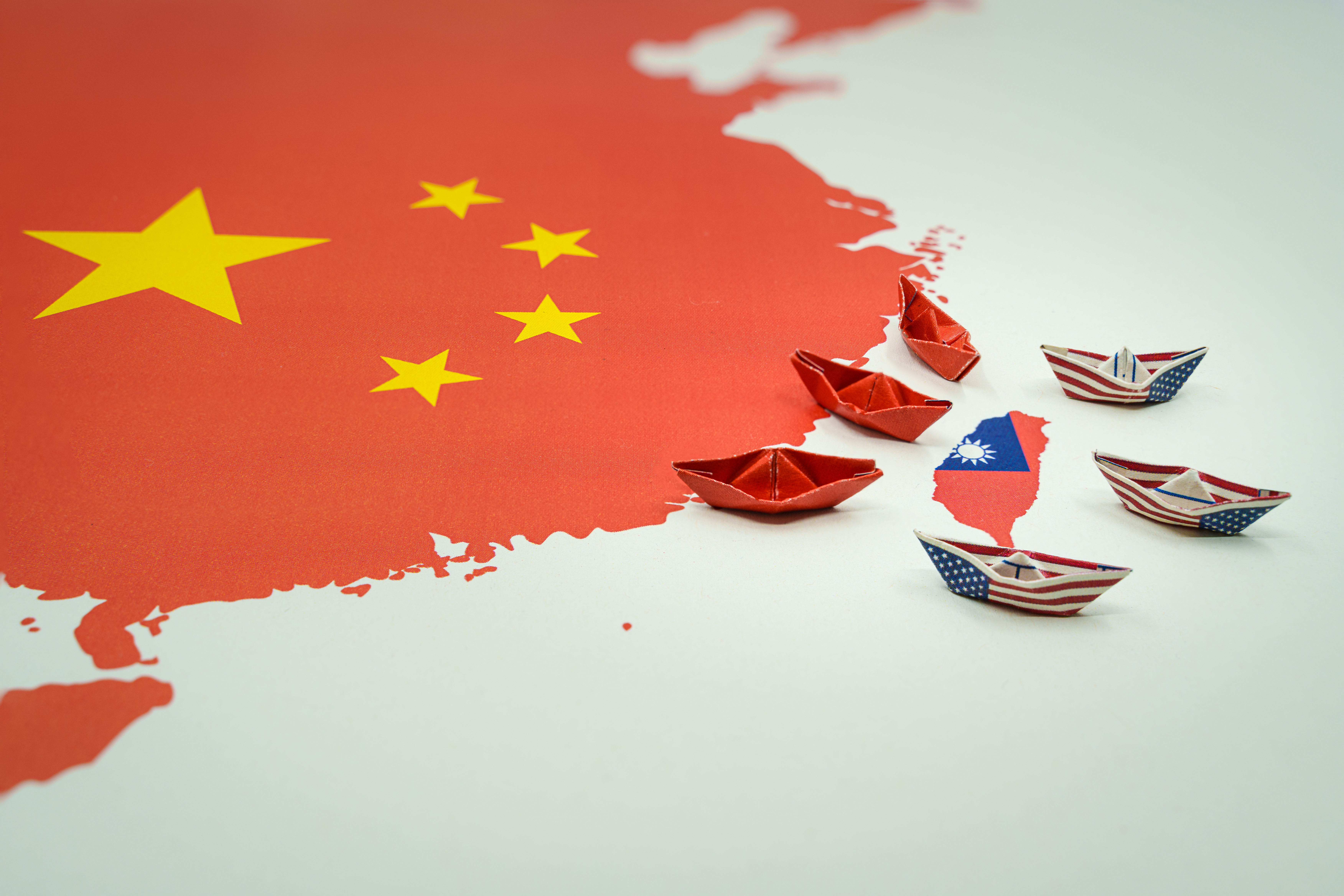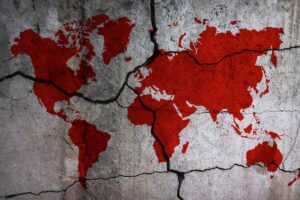The Red cell project
The Red Cell was a small unit created by the CIA after 9/11 to ensure the analytic failure of missing the attacks would never be repeated. It produced short briefs intended to spur out-of-the-box thinking on flawed assumptions and misperceptions about the world, encouraging alternative policy thinking. At another pivotal time of increasing uncertainty, this project is intended as an open-source version, using a similar format to question outmoded mental maps and “strategic empathy” to discern the motives and constraints of other global actors, enhancing the possibility of more effective strategies.
Who Wins a War Over Taiwan?
“Go ahead, make my day,” detective Clint Eastwood dares a cornered criminal to aim his gun in order to test whether the officer’s revolver is out of bullets in the classic movie Dirty Harry. Too much of the debate over Taiwan in Washington seems to reflect such bravado, discounting the probable multidimensional horrors of a war between the two largest economies, both of which are nuclear-armed. During the 1962 Cuban Missile Crisis, the leaders of the United States and the Soviet Union, John F. Kennedy and Nikita Khrushchev, respectively, were desperately trying to avoid a nuclear conflict, which they narrowly did. Today, in sharp contrast, amid a climate of mutual demonization, Washington Uber-Hawks appear eager to take on mainland China, as if forgetting it is a mature nuclear state and that Taiwan is viewed as an existential issue for Beijing.
In the dystopian novel 2034 by Eliot Ackerman and Adm. James Stavridis, the Chinese Navy’s sinking of a U.S. destroyer in a South China Sea clash swiftly escalates to nuclear exchanges in a new world war. The ease with which nuclear exchanges wipe out cities like Shanghai and Los Angeles is chilling. Slightly more measured, in his influential book Strategy of Denial, Elbridge Colby envisions orderly, yet limited nuclear exchanges between the United States and mainland China in a war over Taiwan. Both scenarios are hard to fathom, one too easily reckless, the other somehow clinically restrained.
The Price of Conflict
Short of a nuclear war, a conflict over Taiwan would unquestionably cause catastrophic economic damage, not only for the United States and mainland China but for the rest of the world. Notably, the Chinese economy is ten times larger than that of Russia, far more integrated into the global trade and financial system, and has driven 30% of global growth for more than a decade. Guesstimating the specific economic ramifications of a conflict over Taiwan is inherently speculative depending on the scope, intensity, and duration of such a conflict. A Rhodium Group study outlined some of the difficulties: “Crucial data, particularly on semiconductor supply chain activity, is not publicly available. Important aspects of disruption scenarios are not easily quantified and often left out of trade shock models, including impacts on cross-border flows of people and ideas. The ripple effects from trade and supply chain disruptions are also very difficult to estimate.”
Nonetheless, based on both the stakes and previous experiences (e.g. sanctions on Iran and on Russia over Ukraine), it is possible to extrapolate potential scenarios and their overall impact on the global economy. Such scenarios range from a politically motivated quarantine of Taiwan by mainland China to a total air and naval blockade, to a protracted conventional war.
Actions Short of Direct Conflict
Actions short of a direct conflict could have a large impact on the global economy. A Chinese quarantine of Taiwan would differ from an air and naval blockade in that it would first be a political act, to assert Beijing’s claim of sovereignty. The distinction between a quarantine and a blockade is that the latter creates a state of war. During the Cuban Missile Crisis, the Kennedy administration declared a quarantine of Cuba targeted at Russian missiles or personnel, rather than a total blockade, precisely to avoid escalating into a full state of war.
Similarly, a Chinese quarantine might block only narrowly targeted air and sea transit and/or specific trade. But a Chinese move to take Taiwan is more a rheostat or dimmer than an on-off switch. Even though a quarantine would be less likely than a full-scale blockade to result in a U.S. military response and conflict, a quarantine has the potential to escalate into a shooting war as well. That such an interim move would either escalate or cause an embarrassing retreat by the People’s Liberation army suggests it is not a high-probability event.
If mainland China did impose a quarantine on Taiwan, it would almost certainly have immediate economic costs. A quarantine would disrupt Chinese and global financial markets, cause the renminbi (RMB) to tank, and chill business confidence, effects that would likely diminish, if followed by a period of stability.
A blockade would most likely be one component, an opening gambit of a conflict in a Chinese effort to reunify with Taiwan by force. It would choke off air and naval traffic essential to the island’s economy and swiftly trigger US/G-7 financial and trade sanctions.
Economic Consequences of a Year-Long Conventional Conflict
To grasp the economic stakes of a year-long conventional conflict over Taiwan, one first has to consider the relative weight of all three countries in the global economy: according to World Bank data, the U.S. and Chinese economies together comprise about 43% of the global economy; Taiwan is the world’s 16th -largest economy, and a major trading nation with nearly $1 trillion in annual trade (25% of which is with mainland China) that would be completely disrupted by a blockade and conflict.
Semiconductors are the oil of today’s knowledge economy. Critically, Taiwan accounts for 92% of the world’s advanced logic chips (10 nanometers and smaller). Overall, Taiwan accounts for about 55% of world chip fabrication. A recent Rhodium Group assessment says Taiwan produces 35% of the world’s autos and 70% of its smartphones. It also dominates the production of chips for personal computers and servers. The Rhodium Group’s conservative estimate is that a year-long blockade would result in these industries losing about $1.6 trillion in revenue.
The cascading effects on a chip-dependent world economy would of course be huge. An Atlantic Council study estimates that G-7 sanctions on Chinese financial institutions in a Taiwan crisis could potentially disrupt $3 trillion in trade and financial flows. During the 2020 pandemic, much short-term trade financing dried up as supply chains were stressed. A more pronounced cutback of trade financing would most likely ensue in a Taiwan blockade/conflict scenario.
With Taiwan chips essential to autos, laptops, tablets, and smartphones, as well as critical infrastructure and medical devices, their respective supply chains would be disrupted, along with global trade. In the aftermath of Russia’s invasion of Ukraine, hundreds of multinational firms headed for the exits. Already today, foreign companies are cutting back investment in China and are re-shoring manufacturing to India and Southeast Asia. In the event of a Taiwan blockade/conflict, as in the Russia case, a wider exodus would occur. In addition, capital flight from China would probably increase dramatically. Furthermore, a US-mainland China conflict over Taiwan would disrupt major shipping lanes hundreds or thousands of miles away; 60% of global maritime trade passes through the South China Sea and the Straits of Malacca.
The contraction of trade combined with supply chain shortages — as occurred during the pandemic — would ripple through the world economy and potentially spark massive inflation. A 2016 RAND study estimates that a year-long severe conventional conflict in East Asia could result in a 25-35% contraction of China’s GDP and a 5-10% loss of U.S. GDP.
Presuming a year-long conflict remained conventional, one can only imagine the physical damage Taiwan would endure, leaving an economy and the island in ruins. The impact on China’s economy — already troubled and with an uncertain future trajectory — from all the trade and financial disruption would be significant with unpredictable political consequences.
Clearly, a war over Taiwan would have immense economic fallout, even presuming it did not escalate to directly involve other regional powers. The Western-led response to Russia’s invasion of Ukraine has had a major impact on Beijing’s thinking about Taiwan. China is increasingly taking steps to reduce vulnerability to the dollar. Beijing is stockpiling gold, and the amount of its trade in RMB has reached nearly 20%, up from 13% in 2019. Beijing’s options to insulate itself from sanctions, however, are still limited. Due to its capital controls, the RMB is a long way from being a global reserve currency alternative to the dollar.
Time to Hit the Pause Button
The prospective economic impact of a blockade and conflict to make Taiwan another Chinese province may well give Beijing pause, incentivizing the Chinese Communist Party to consider swifter, non-kinetic options. It should also give pause to members of both parties in the United States who seem all too ready to voice support for Taiwan’s independence, and the defense thereof, without understanding the likely political and economic consequences.




